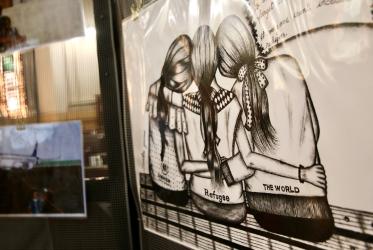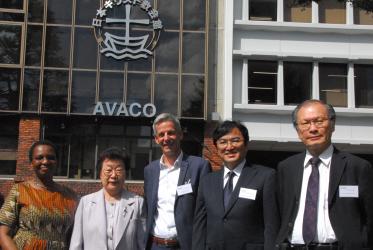Displaying 1 - 20 of 119
Specialized Ministries Pre-Assembly
09 - 10 March 2022
Rethinking Ecological Relationships in the Anthropocene era
11 - 13 February 2021
South Sudan Church leaders welcome new cabinet
15 March 2020
In Japan, theologians reflect on today’s global manifestations of racism
18 September 2019
Dr Saïd Ailabouni: God is on the side of rejected, oppressed, occupied
12 September 2019













